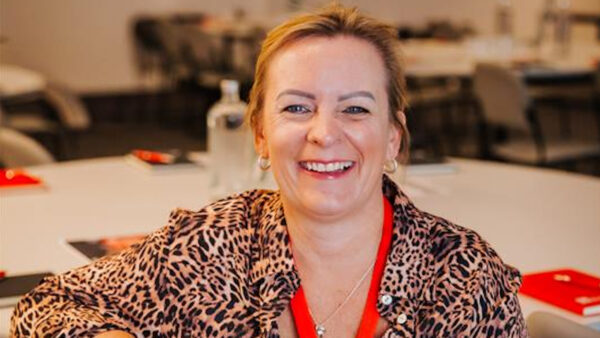Rod Sweet meets the maverick boss pioneering a five-day week on a Sydney hospital project

Like other countries, Australia has a problem with its construction culture. The sector needs 114,000 new workers by 2024 to deliver the pipeline of government infrastructure projects already awarded, but the industry’s harsh working environment – long hours, high pressure, adversarial behaviour – puts people off joining the industry, pushes people out of it early, especially women, and takes a heavy toll on those who stay.
The statistics are shocking. The suicide rate is more than double the national average; construction workers are six times more likely to die of suicide than workplace accidents. Women leave the industry six times faster than men. The human cost of industry dysfunctions is estimated to be some A$6bn (£3.28bn) a year.
Prompted by this state of affairs, the state governments of New South Wales (NSW) and Victoria have teamed up with the Australian Constructors Association, the trade body representing tier 1 contractors, to convene the Construction Industry Culture Taskforce (CICT).
Its job is to come up with new industry standards protecting mental health and family wellbeing, the goal being that compliance with the standards becomes a condition for winning public sector work.

“You can’t allow someone to die by suicide caused by workplace stress when we’re building a hospital”
The CICT will pilot new ways of working that make the industry more humane for its people, accompanied by research quantifying the impact on wellbeing, project economics and productivity.
Its flagship pilot is the A$341m first stage of the Concord Hospital Redevelopment in Sydney, involving the design and construction of a 44,000 sq m clinical services building. Unheard of in Australian construction, where a six- or even seven-day week is the traditional norm, contractor Roberts Co is delivering the project with a strict five-day working week, giving workers what most of us take for granted: a weekend to rest, recover and spend time with the family.
The five-day pilot is the brainchild of Roberts Co chief executive Alison Mirams, who rose up through the ranks at Multiplex before taking the helm of Roberts Co in 2017 with a mandate to change the way it does business. She knows the sharp end of construction as well as anyone, having risen from contracts administrator to commercial manager to regional director at Multiplex.
“I was given a blank sheet of paper when I joined,” Mirams says in an interview with CM. “And when you look at the industry in Australia – high suicide, high divorce rates, women leaving in droves – I just thought we’ve got to be a catalyst for change. If we didn’t do something different when we had a blank sheet of paper, it would have been the most enormous waste.”

She adds: “The struggle to change is really hard. The industry has a skills shortage because we’re not attracting enough people into the industry. The industry is fixated on a six-day week because that’s the way we’ve always done it. It’s so stupid, it hurts.”
In 2019, she tendered for the Concord job with an explicit challenge to the client, NSW Health Infrastructure.
“We said: you of all people can’t allow someone to die by suicide caused by workplace stress when we’re building a hospital to make people better,” she says. “It’s not right.
We said: here’s a five-day programme and here’s a six-day programme, but understand that under the six-day programme, there might be a suicide from stress. And to their credit, they said: ‘Okay, what’s the cost?’”
The time implication was 10 extra weeks, which carried an estimated cost of A$2.5m, about 1.2% of the contract sum, which NSW Health Infrastructure agreed to absorb.
When CICT convened, it adopted the Concord project as a pilot and CICT and Roberts Co engaged a researcher from the University of New South Wales to study the impact of a five-day week on the wellbeing of workers and families. A report is due in the fourth quarter of this year, but Mirams says interim findings are encouraging.
“The feedback from the workers is: I’m happier, I’m less stressed and depressed, I’m excited to go to work on a Monday, I’m taking my kids to Saturday sport,” she says. “Foremen say it’s the most productive, efficient, safest site they have. As we expected, the next-of-kin said: my husband is happier, healthier and has a better relationship with me and my kids.”
Humane and productive
Mirams believes that retooling the construction business model to make it more humane can also make it more productive. She says they wouldn’t be using the whole 10 weeks and that if it wasn’t for covid they might not have used any of it.
She credits Roberts Co’s focus on design management, which she believes is neglected in the industry now, as a key driver of productivity. She makes sure that senior, talented people are in that role.
“My theory,” she says, “is that if you don’t get the design right when it’s needed, and decisions get pushed back, that’s what causes trouble later. The root cause is you haven’t done design properly at the front end, and if you don’t complete design, you can’t procure, and if you can’t procure you can’t build, so we waste time at the front and get slammed at the back.”
The business benefits of the pilot are already manifesting. As news of it has spread, job applications from women have flooded in. Other clients are catching on: the company starts a hotel project in September that will run on a five-day week and recently tendered for another contract on the same basis.
The pilot is generating fierce debate, but Mirams believes she’s on the right side of history. “The resistance comes from the top of companies,” she says. “It’s not the people on the ground. The people on the ground are saying, I don’t want to work Saturdays. I don’t care if you worked 80 hours a week when you were a kid, I want my life.
“And so the industry will change when Gen Zs are running it. But why wait 10 or 15 years for that? Why not do it now so we can enjoy it? That’s my theory. It’s so basic. We’re operating in the dark ages.”











